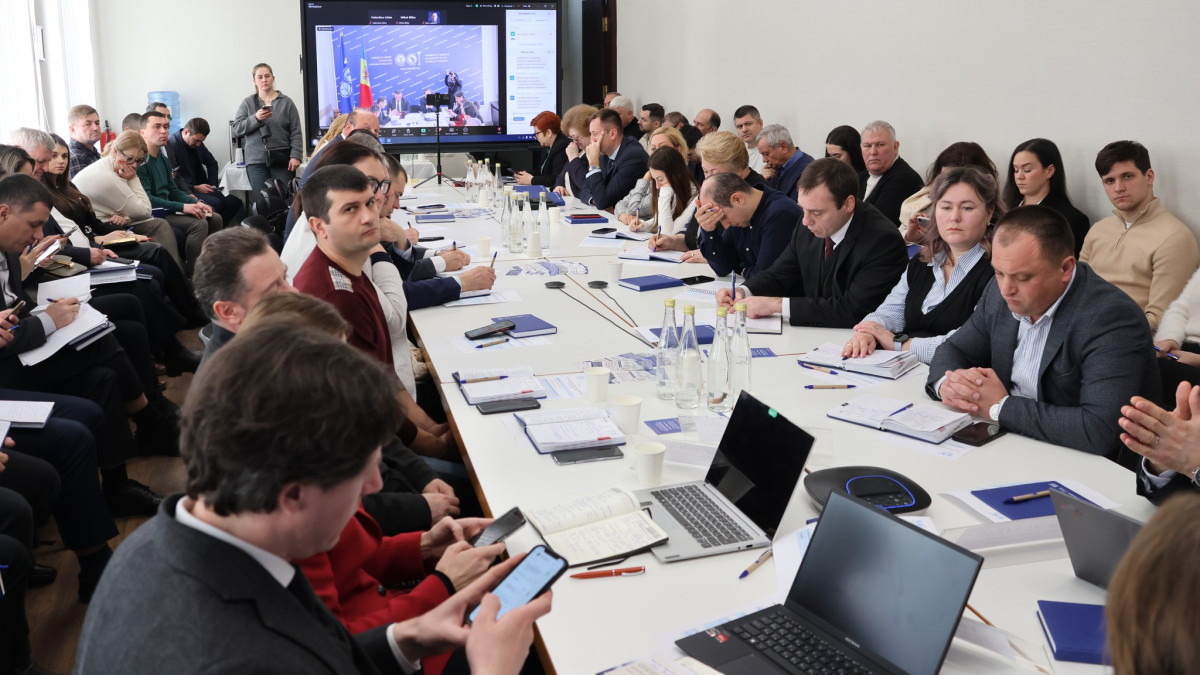Strengthening Public-Private Dialogue for a European Economy: The Experience of the Chamber of Commerce and Industry of the Republic of Moldova under the Moldova ASSIST Project
Published: Jul 9, 2025 Reading time: 3 minutes Share: Share an article
Between October 2024 and May 2025, the Chamber of Commerce and Industry of the Republic of Moldova (CCI RM) carried out a series of activities aimed at promoting European reforms among local entrepreneurs, as part of the project “Building Public Capacities for Understanding Reforms in the Context of EU Accession (CAPER-EU),” carried out within the Moldova ASSIST initiative, funded by the European Union and implemented by People in Need Moldova.
The main objective was to facilitate dialogue between the private sector, public authorities, and reform experts to align business practices with European Union standards and requirements. This effort aimed to support the development of a functional, informed, and resilient economic environment, capable of responding to the challenges of European integration.
Throughout the project, five information and consultation sessions were organised in the Central region of Moldova, gathering over 160 participants, including entrepreneurs, representatives of local and national authorities, and technical experts from relevant fields. Topics addressed included the alignment of local agriculture with EU standards, emphasising product quality, food safety, and environmental protection; government support measures for businesses in the context of the energy crisis; promotion of digitalisation through public e-services such as MSign, MCabinet, MPower and SIAGEAP; implementation of Extended Producer Responsibility (EPR) mechanisms as part of the transition to a circular economy; and legal mechanisms to support businesses, such as force majeure clauses, mediation, and commercial arbitration.
These activities led to several concrete developments. Some entrepreneurs initiated the digitalisation of their operations by implementing MCabinet and using electronic signatures. Others began the registration process for EPR, while several companies turned to CCI RM’s mediation services following the session in Anenii Noi, demonstrating the practical relevance of the information provided.
A key element in the success of the initiative was interinstitutional collaboration. The involvement of local public authorities in Criuleni, Ialoveni, and Anenii Noi contributed to engaging entrepreneurs and creating a constructive space for dialogue, while national institutions such as the Ministry of Economic Development and Digitalisation, the E-Governance Agency, and the Environmental Agency provided up-to-date information on current policies and reforms. Additionally, contributions from academic and legal experts helped enhance the quality of content and encouraged the exchange of best practices.
The project highlighted the importance of tailoring content to the participants’ levels of knowledge and specific needs, as well as the need to expand participation to include underrepresented groups, such as women, young people, and businesses from remote areas. These lessons will help improve future approaches and increase the impact of upcoming support initiatives for the private sector.
“The fact that local entrepreneurs are beginning to put into practice the European solutions presented during these sessions, whether in the area of digitalisation, circular economy, or mediation, is clear evidence that well-structured dialogue can generate real change. The European Union provides the framework, while partnerships between authorities, civil society, and the business sector turn that framework into a driver of sustainable development and closer alignment with European standards,” said Rafal Chibowski, Country Director of People in Need Moldova.
The activities were part of an information campaign carried out by the Chamber of Commerce and Industry of the Republic of Moldova within the project “Moldova ASSIST: Improving access to quality public services and strengthening social cohesion.” The project is funded by the European Union and implemented by People in Need Moldova.



